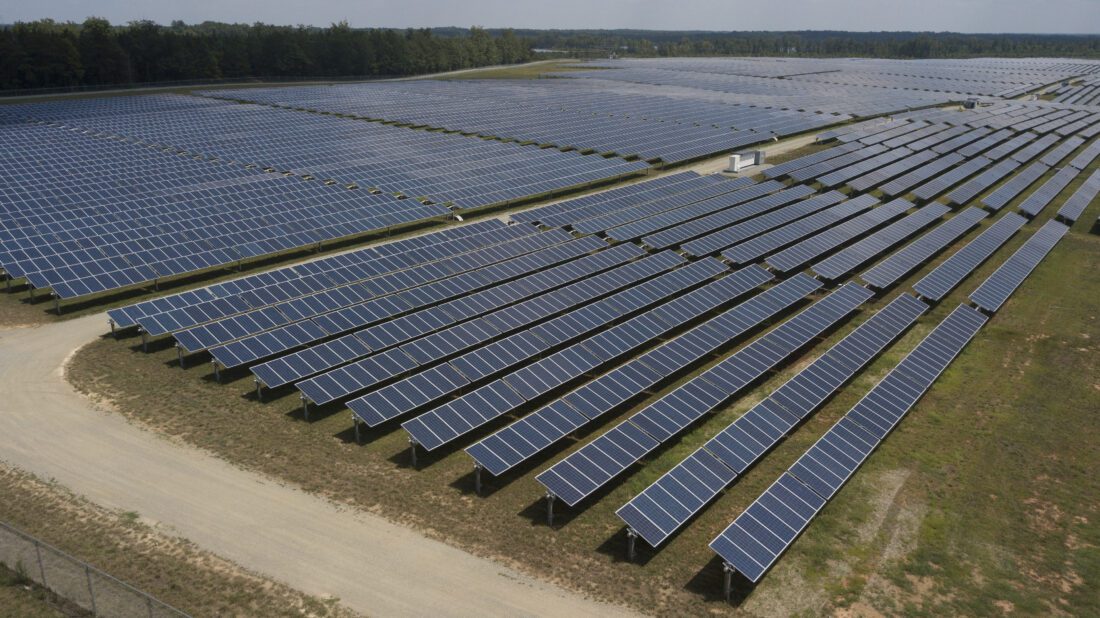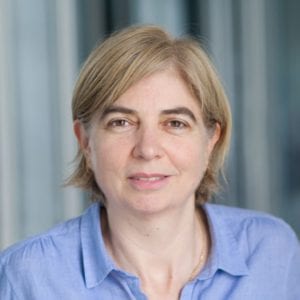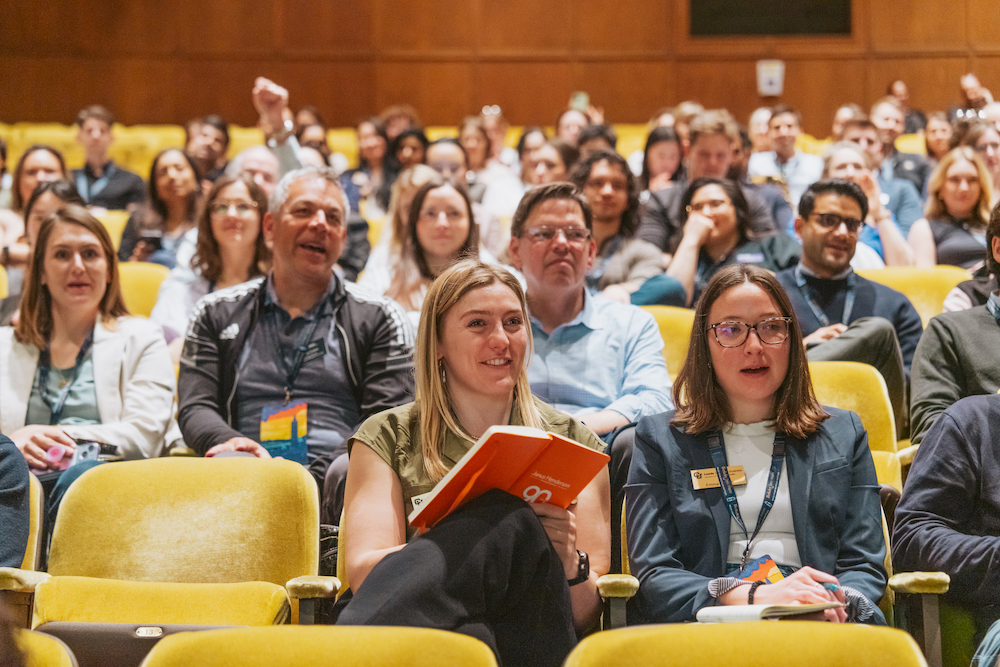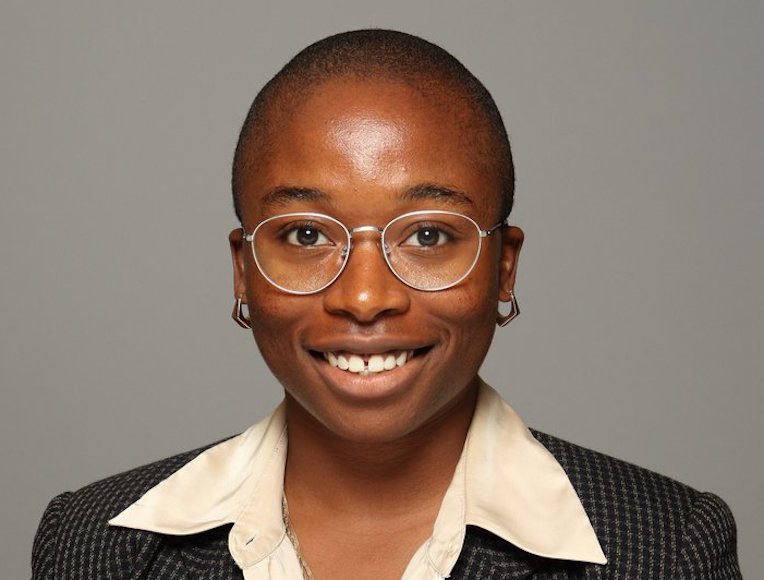Summit energizes hundreds of MBA students to lead climate innovation

The Haas School of Business is launching the first student-led Climate Solutions Fund, the latest addition to its comprehensive curriculum to equip the next generation of business leaders with the financial skills to accelerate the transition to a low-carbon economy.
Beginning in fall 2024, MBA students can enroll in a new course where they serve as investment managers for the $2.37 million fund, learning how to structure financing in complex private markets by co-investing in real-world deals focused on solutions to climate change.
“As the world moves toward a goal of net-zero carbon emissions by 2050, we need financial leaders with the skills to navigate the economic revolution we are facing,” says Professor Adair Morse, co-founder of the Sustainable and Impact Finance Center (SAIF), who conceived of the fund and will lead the course. “This economic revolution will be staggeringly disruptive yet will also be a source of more business opportunities across all parts of the country than we’ve seen in 250 years.”
“As the world moves toward a goal of net-zero carbon emissions by 2050, we need financial leaders with the skills to navigate the economic revolution we are facing.” —Professor Adair Morse
The new fund was made possible by a lead gift from Allan Holt, MBA 76, along with generous founding donations from Larry Johnson, BS 72, Charlie Michaels, BS 78, and his wife Doris, Scott Pinkus, and Professor Laura D. Tyson, former Haas dean and co-founder of SAIF.
“I am thrilled to help Haas take the lead in training leaders in the emerging area of climate finance,” says Holt, a Senior Partner and Managing Director of The Carlyle Group. “Decarbonizing our economy is the critical issue of our time, and I am committed to supporting future leaders who can spur this transition.”
“Decarbonizing our economy is the critical issue of our time, and I am committed to supporting future leaders who can spur this transition.” —Allan Holt, MBA 76
The multi-asset class private Climate Solutions Fund augments Haas’ unique curriculum under SAIF, which teaches investment management with hands-on experiential learning. It rounds out the public markets-focused Sustainable Investment Fund—the first and the largest student-led sustainable investing fund within a leading business school—and the Haas Impact Fund, a seed/startup capital offering.
A new area of finance
The Climate Solutions Fund curriculum will teach students new designs and uses of finance not traditionally taught in mainstream finance courses, where there are dire needs for leadership, according to Morse, who saw the need for this financial expertise while serving as deputy assistant secretary of Capital Access in the U.S. Department of the Treasury from 2021-23.
Financing the climate transition requires a diverse and technical tool kit: An estimated $4 trillion to $5 trillion per year will be needed to reshape global energy, transportation, food, and waste infrastructure, and to help companies reinvent supply chains and integrate new technologies, Morse says.
“This level of reinvestment will require every finance tool available, including designing financial structures to mobilize government programs and work with community and industry partners,” she says. “Our goal is to expand how we teach students to provide the leadership and expertise that corporations, financial entities, startups, governments, and philanthropies will need to navigate this transition.”
“This level of reinvestment will require every finance tool available, including designing financial structures to mobilize government programs and work with community and industry partners.” —Professor Adair Morse
The fund, and the associated MBA course, are the first at a major business school to focus on complex financing strategies within private markets, including growth equity and debt equity; public-private partnerships with federal and state programs; risk mitigation; identifying the underlying technologies to fuel the low-carbon transition; and envisioning new financial products.
Students enrolled in the Climate Solutions Fund course will assess investment opportunities in U.S.–based for-profit companies, working with outside investment partners to structure deals. Following a pitch competition, student managers will select one finalist to co-invest $100,000 to $300,000 annually. The fund is intended to generate positive returns over time so that future generations of students can build off the capital.

Comprehensive curriculum
In addition to the “fund-as-curriculum” courses, SAIF also offers other applied innovation courses such as the Impact and Climate Investing Practicum, where faculty guide small teams of MBA students who are paired with impact investing firms to to gain hands-on experience with impact investing strategy, mapping, and measurement projects.
The courses count toward the Michael’s Graduate Certificate in Sustainable Business. Open to both full-time and evening and weekend MBA students, the certificate requires 9 units of required coursework. Students can create a pathway that’s focused on either bringing a sustainability lens to a mainstream business function or building expertise into a specific industry such as renewable energy or green infrastructure.
In addition to Morse, SAIF is led by Professor Panos Patatoukas, The L.H. Penney Chair in Accounting, and Tyson.
Five major areas of sustainability
The new Climate Solutions Fund is part of Haas’ larger effort to ensure that all students are educated in the fundamentals of sustainability. Haas launched the first student-managed SRI fund in the early 2000s and is now the only top business school to work across five major sustainable business areas: energy, sustainable agriculture and food, real estate and urban economics, corporate accountability, and sustainable finance and accounting.
The school has combined research on energy conservation and storage, building efficiency, renewable energy sources, and sustainable food with efforts to include climate and equity into the core business curriculum across all programs. All told, Haas offers more than 25 courses with a focus on sustainability.
For students planning careers in managing sustainability challenges in organizations, Haas is also planning to launch a new joint master’s program in 2024 with the Rausser College of Natural Resources to offer an MBA/MS in Climate Solutions.
Posted in:
Topics:




